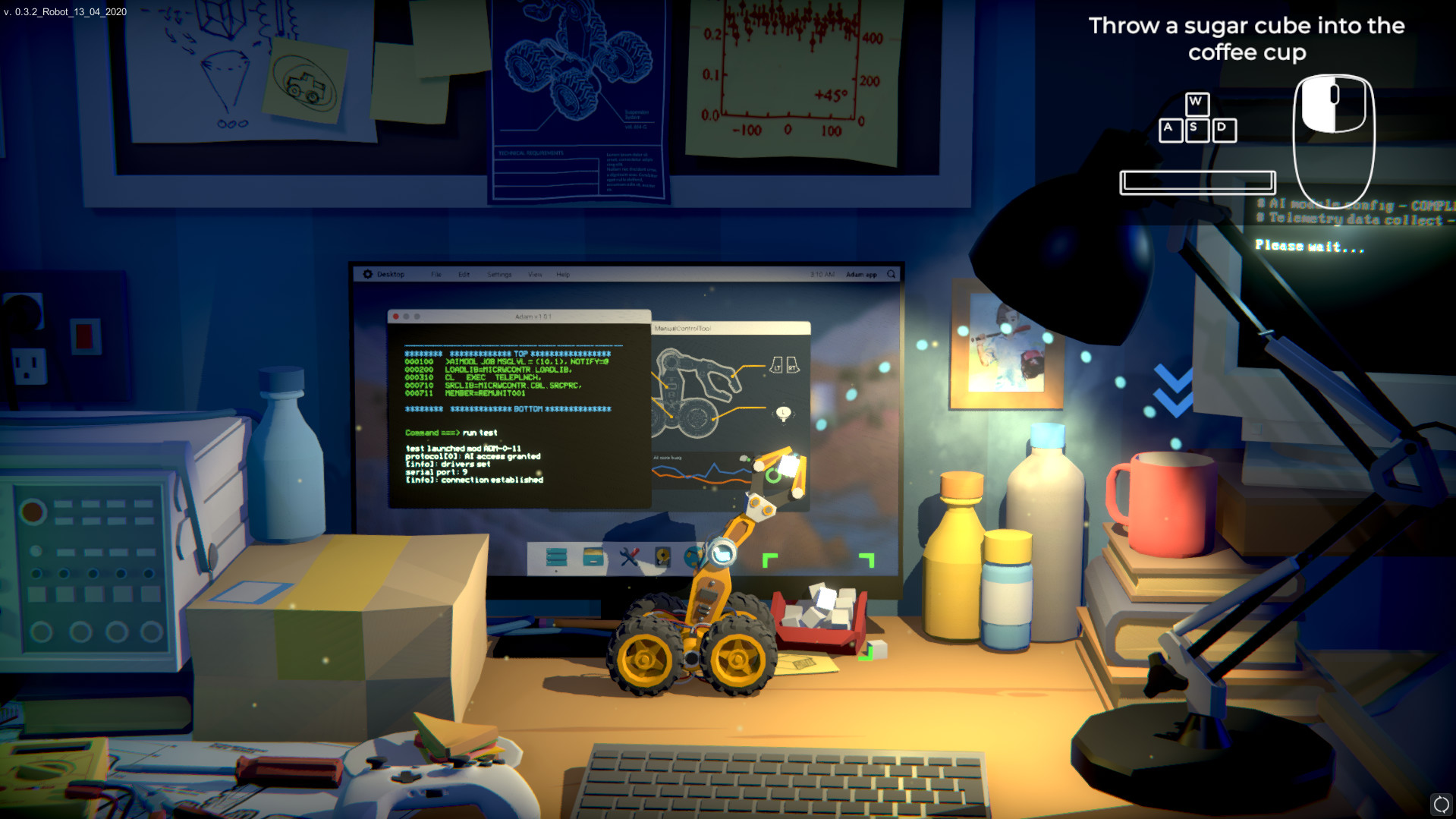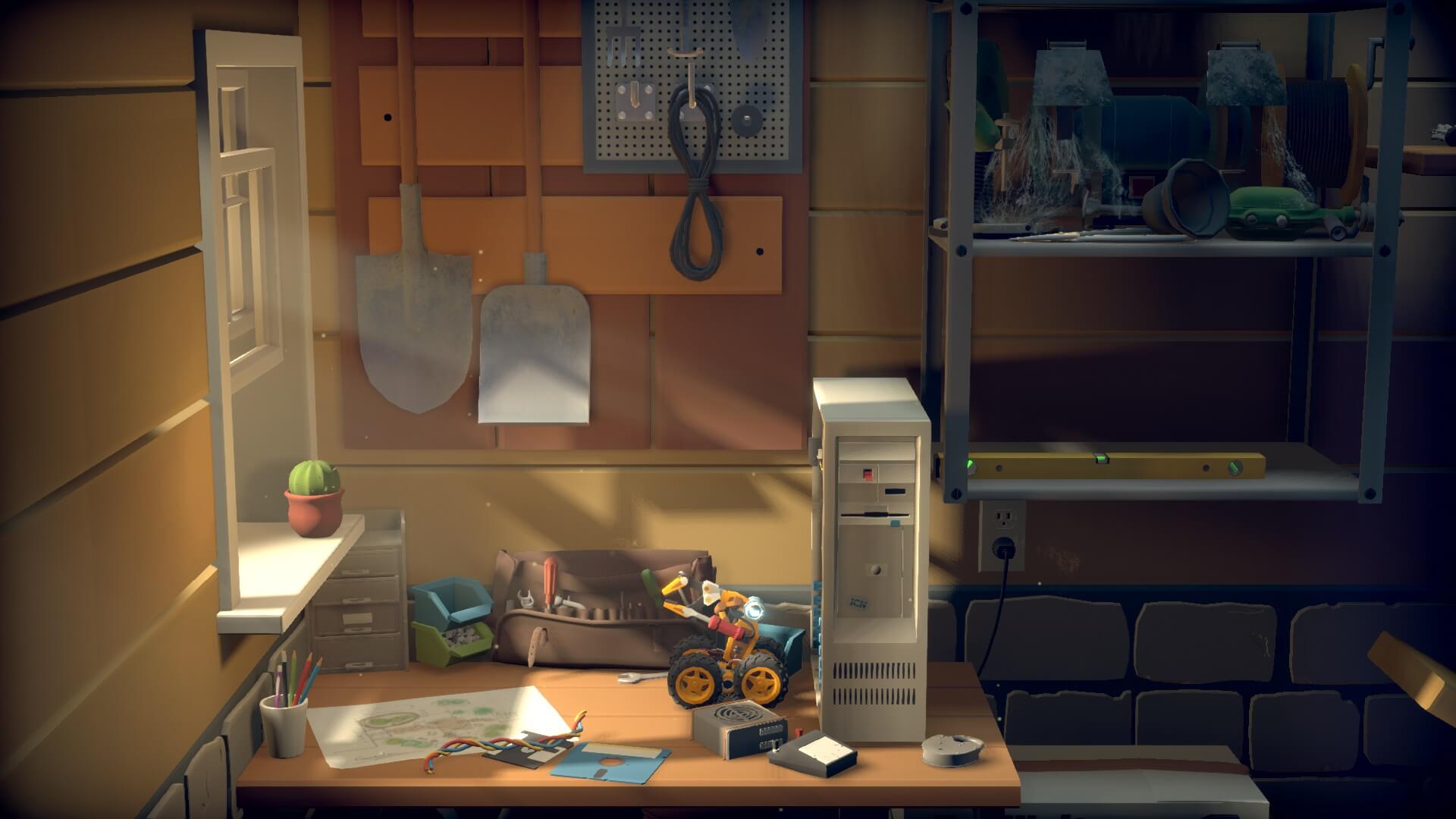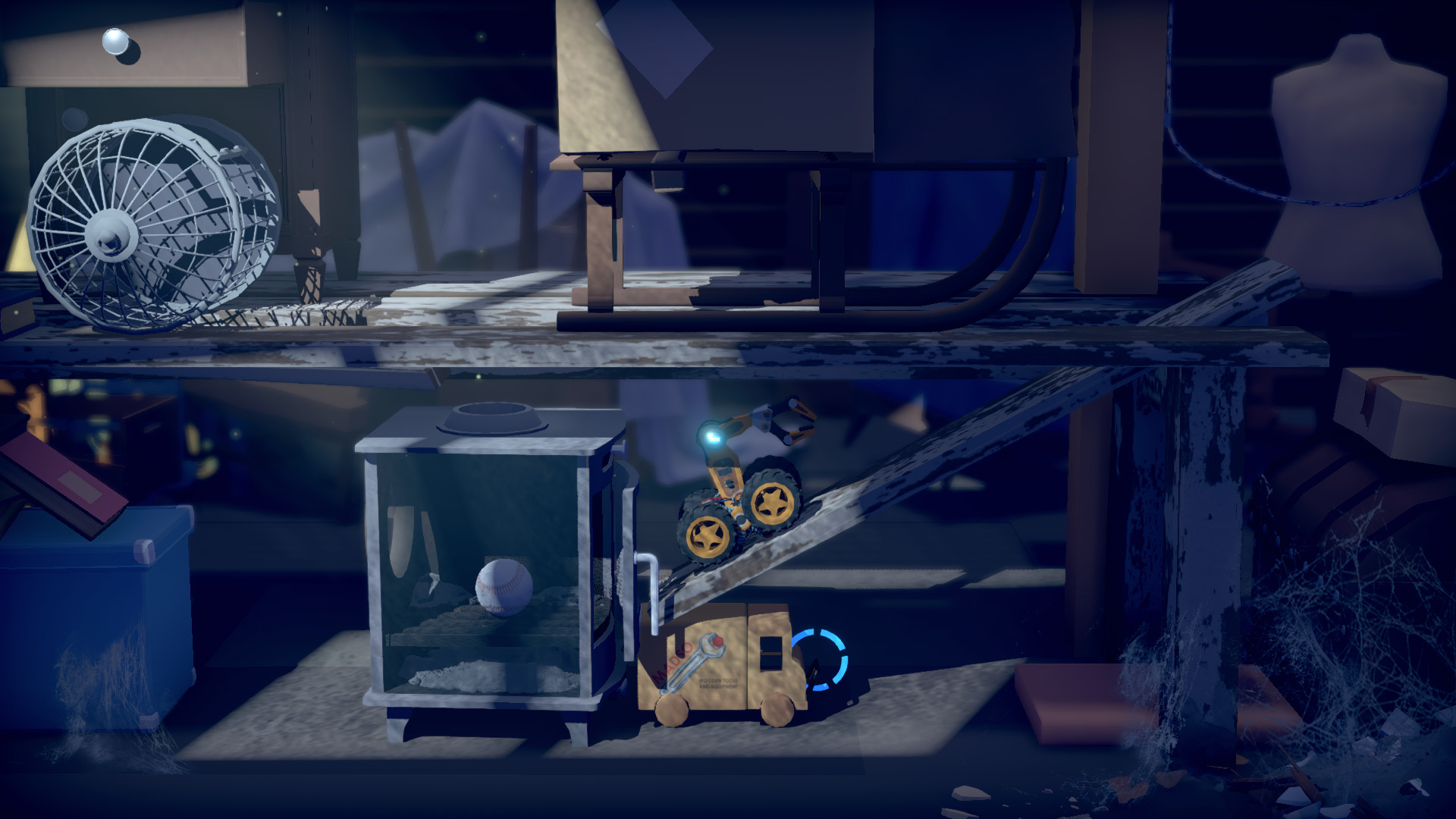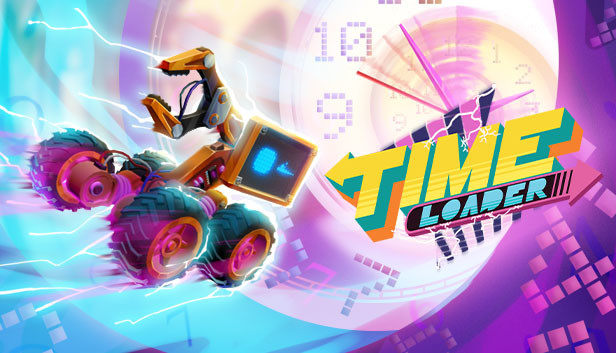If books, movies and TV shows have taught us one thing, it’s that time travel is generally a bad idea. However, humanity has seemingly been fascinated with the idea ‘forever,’ though no real headway seems to have been made. Perhaps that’s a good thing, though, because while the thought of going back and righting one’s wrongs, or trying to prevent something terrible, will always be appealing, we don’t know what the consequences would be. In movies, they tend to be drastic, and it’s very possible that they would be in real life too. Thus, we’re probably lucky that traveling back and forwards through days, months and years isn’t a possibility.
It’s this conundrum that Flazm’s new-to-consoles game, Time Loader, flirts with over the course of its two to three hour-long campaign. It does this through a small toy robot who’s been programmed to have some sentience, although that’s all controlled by us human players.
Things begin in the present day, where a thirty-something man wishes he could go back in time and prevent the accident that paralyzed him. To achieve this, he somehow manages to create a small time machine, which he then uses to send his toy loader back to the year 1995. This is the start of what is a three act story, and one that doesn’t demand too much of its players.

After beaming back to the mid-nineties, our controllable toy loader is charged with altering and/or moving the things that were responsible for his scientist friend’s accident. This involves traveling throughout his family’s home, while using physics to get over obstacles, swing onto platforms, throw things a limited distance or pass under furniture like chairs and beds. As part of this purpose, you’ll pick things up, alter the makeup of rooms by placing, pulling or dislodging toys, items or furniture, or jump and grab onto things. Going further, there will also be times where you’ll have to break shelves or other things by using a screwdriver to add or remove screws, jolt items with electricity, or use an extended reach power-up to grab things from a distance. Every moment spent doing this will require the use of physics, and cause you to have to analyze environments with its principles in mind.
Needless to say, Time Loader is a puzzle game through and through, but it’s not the typical sort. It provides a lot more freedom then most, and isn’t structured as a limited amount of puzzle rooms. Instead, it allows the player to move throughout a home and its exterior, all while pointing them in the right direction and providing both audio and visual clues. This isn’t to say that it tells you exactly what to do, though. The game just gives you a general idea, and provides the odd hint, while an arrow points in the direction you need to go.

Although puzzle games have never been my thing, there have been rare occurrences where I’ve thoroughly enjoyed one. As such, I decided to give this game a shot when I was asked about reviewing it, and hoped that I would end up enjoying it as much as others. My interest in the genre may be weak and limited, but I also don’t like missing out on good games, which is what this one seemed to be. At the very least, it was intriguing.
Thankfully, Time Loader ended up being one of those rare puzzle games that I actually enjoyed. In fact, I liked it more than expected, and am glad that I decided to give it a chance. While I maybe didn’t appreciate or like it as much as the genre’s biggest fans would, it was a nice change of pace from the types of titles I’d been playing, and was both relaxing and thought provoking at the same time. The game’s puzzles may not be super challenging — thank God — but they do require some thought, and there were a couple of times where I got stuck. In fact, I actually looked at a guide a couple of times. When I did, I noticed that I’d had the right idea and had been doing the right thing. I simply hadn’t thrown an item high enough, in one instance, or grabbed a ball properly in the other.
This leads me to the downsides of Flazm’s relaxing but thought provoking indie. Those involve its controls and physics, which are never perfect or frustration free. While physics is the basis of the game’s puzzles, things don’t always work flawlessly, and this can lead to the player thinking they’re doing the wrong thing. The same is true of the controls, which can sometimes be cumbersome; especially when you need to use the extended reach to grab and hold onto something. Thankfully, these instances are few and far between.

On the presentation side of things, this is an above average release. The house you get to explore is both detailed and predominantly well designed, and I liked how different it looked depending on the time period. It was also very colourful, and felt ‘homey,’ as if a family actually did live inside of its walls. Meanwhile, the game’s soundtrack featured a nice mix of relaxing piano music and some more uptempo, techno-style stuff. This was then complemented by limited, but solid voice acting.
If you’re looking for a relaxing, but interesting, puzzle game to play, look no further than Time Loader. Although its controls and physics aren’t always perfect, it’s an enjoyable and memorable title that is worth your time and energy. It also offers a few different endings, thanks to a design that allows you to alter the house in ways that will change the family members’ lives.
This review is based on the Xbox One version of the game, which we were provided with.

